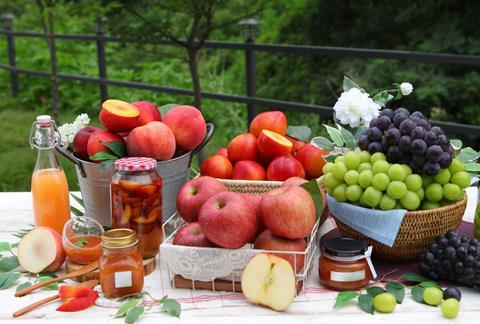Korean minister of agriculture, food and rural affairs outlines government plans to foster young farmers and accelerate technology take-up
Chung Hwang-keun, Korea’s Minister of agriculture, food and rural affairs has outlined how the government plans to support the country’s agriculture industry to prepare for the future with policies designed to encourage digitisation and a new generation of farmers.
In an interview with The Korea Times, Chung said the government will foster young farmers and accelerate the take up of new farming technologies by supporting food technology industries, all in an effort to revolutionise agriculture into a new high-tech growth industry.

Developing the next generation of farmers is one of the government’s top priorities, it plans to facilitate smart farming training programmes and financial support to try and encourage younger people to move to rural areas.
“Young people are the future of Korea’s farming. Only about 1.2 per cent of 2.2m farmers are aged 39 and younger in the rural areas where about 10m people live,” said Chung.
“The staggeringly low number should be pushed up through immediate policy support. Otherwise, the rapidly aging population in the nation’s remote areas will shrink to a point beyond repair over the next ten years.”
One policy includes giving young farmers three years of income to help them commit to the industry. This year the programme attracted around 4,000 participants, twice as many as 2021, which the majority coming from metropolitan areas.
These young farmers are growing fruits and vegetables on farms operated in part and, sometimes in full, by AI-integrated technologies. The government has pledged to help build services near these smart farms such as childcare centres to help develop community hubs and encourage young farmers to settle,
“The policy should be about helping them plan a hopeful future. They can then expand their businesses and thrive further to elevate the entire industry with a sense of gratefulness,” Chung said.
Exports are another focus according to Chung who highlighted the growth of the strawberry category in Korea. Korean-grown strawberries accounted for a 96 per cent share of the domestic market, up from just 61 per cent in 2010. There has also been a comparable rise in exports.
“Korean strawberries are loved by people around the world,” Chung said. “Many Middle Eastern and South-East Asian countries say they are simply in love with Korean strawberries.”
Chung said Korea is also exporting its technology and noted a recent US$56m contract recently signed with the UAE to export seeds and seed technologies for smart farming. Qatar, Oman and Saudi Arabia have also expressed interest in similar deals.
“Middle Eastern countries want smart farms that are small in size compared to ones in the US, or in the Netherlands, for example, to closely manage,” Chung said.
“AI-powered smart farming technologies will help the industry make a notable jump, buttressed further by autonomous driving and automated technologies.”
Chung also heads a taskforce set up to help Korea achieve a target of US$10bn in agricultural exports and A$15bn by 2027.



